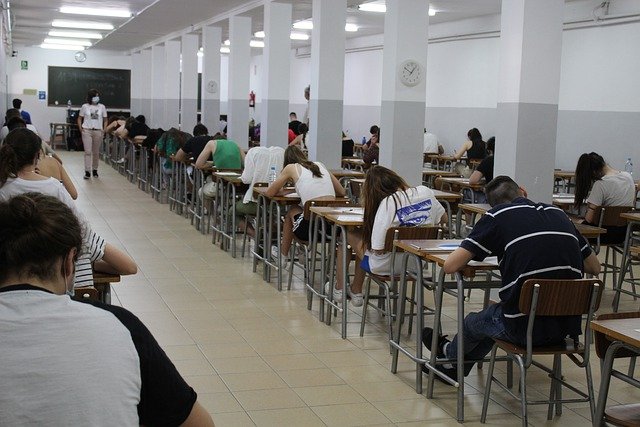By Susan Tebben, Ohio Capital Journal
Two state legislators, including the chair of the Senate Primary & Secondary Education Committee, say a newly proposed funding formula is still alive in Ohio’s biennial budget.
State Sen. Andrew Brenner, R-Delaware, assured a recent Central Ohio virtual town hall including local educational representatives that despite the fact that the majority of the funding formula introduced during the last General Assembly died at the end of the year, the biennial budget brings with it the formula that lessens the weight of property taxes, and expands eligibility for private school voucher programs.
“I believe in this budget there will be a school funding formula in it,” Brenner said.
The total bill for the six-year phase-in of the formula will be closer to $2.2 billion, rather than the $1.8 billion price tag the formula founders estimated, Brenner said, but could have the support of Gov. Mike DeWine, needed to get the budget bill signed and put into law.
“Gov. DeWine has indicated he will support something as long as it’s sustainable,” Brenner told the town hall.
In a Northeast Ohio version of the same virtual town hall, hosted by the Ohio Organizing Collaborative, state Sen. Sandra Williams, D-Cleveland, said the Democratic caucus has submitted several amendments to make sure language protecting funding for economically disadvantaged students and direct funding of EdChoice vouchers stays in the budget as it moves to full Senate Finance Committee review.
Williams expressed concerns with legislators who fear their “suburban districts” losing money as the formula levels out districts who have been considered underfunded over the years.
She also spoke of members of “the majority party in the House of Representatives and the Senate,” who believe vouchers should be available to every student in the state.
A two-page, Republican-led bill entered the House in early May, stating the “General Assembly’s intent” to change the Ohio Revised Code and allow all students to have the option for students funding “to follow them to the schools they attend.” Those schools could include community schools, STEM schools and private schools.
“So I believe that they are trying to really dismantle public education as we know it,” Williams said during the Northeast Ohio town hall.
Local school treasurers and education association leaders said the funding formula is what’s needed to keep up the state of schools that was helped through federal aid funds amid the COVID-19 pandemic.
The Parma City School District is receiving $10 million in federal funds to help keep the schools running, including keeping teachers employed, but the $11 million they lose to charter schools and vouchers every year would make that gain a loss.
“With (the funding plan in the budget), we might have a shot at being able to pass levies, because we won’t have to have them so often,” said Sue Messinger, of the Parma Education Association. “This could totally remake education in Ohio, I think.”
Cleveland Heights-University Heights City School District is considered a high-wealth district because of its dense population, but the student body remains high in poverty, making shared funding important in the district, according to Scott Gainer, treasurer for the district.
Under the current funding model, that shared funding between the state and local districts is “shared, but it’s not equal,” Gainer told the town hall.
“94% of EdChoice voucher students (in the district) were never enrolled in our schools,” Gainer said. “We’re not losing students to EdChoice vouchers, we’re losing money.”
Brenner said he and the Senate have “come to recognize” that private school vouchers, along with wraparound services needed for students outside of academics, are something that needs to be kept in check with districts losing much-needed money.
“School choice is great, except for the districts that are capped and the schools that should be getting dollars,” Brenner said.
Brenner said the Senate plans to introduce their version of the full budget in early June, when it will go into conference committee, on its way to a full-legislature approval by July 1.
Reposted here with permission. Original story can be accessed here.</s









